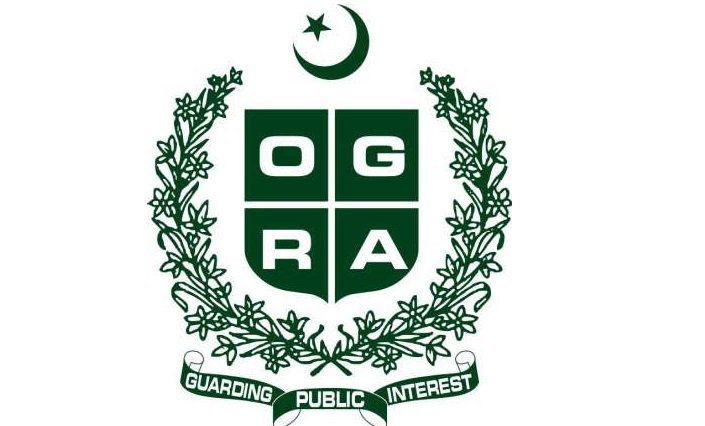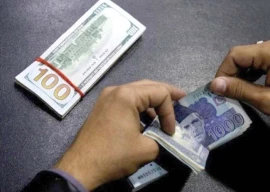
Sadiq did not appear before the Islamabad accountability court hearing the case on Tuesday and filed a one-day exemption plea on medical grounds through his lawyer.
Although OGRA Chief Audit Officer Ehsanul Haq Alvi, a prosecution witness, appeared before Judge Muhammad Bashir, the lawyer for Mansoor Muzaffar, an accomplice to the accused, requested that he be allowed to cross-examine the former on the next date of hearing. Upon this, the court adjourned the hearing till May 28.
While Kamal Fareed and Jawwad Zamir, who are among those named in the reference, appeared before the court, other accused in the case have obtained constant exemptions.
The Supreme Court had taken notice of the scandal in November 2011 and ordered a probe into illegal decisions, corruption and misuse of authority by Sadiq and several alleged accomplices. NAB Rawalpindi filed an interim reference in an accountability court on September 2012 in which Sadiq and several others were accused of causing losses to the tune of Rs44.5 billion to the national exchequer.
NAB leveled three basic allegations in the interim reference. The first was the unaccounted for gas (UFG) mark was swelled from five per cent to seven per cent, causing an unusual increase in the company’s share price and resulting in billions in losses to the national exchequer.
The second allegation was that OGRA permitted 47 CNG stations to move from their allotted spaces. NAB investigations also revealed that nine CNG stations were granted permission to move on the basis of bogus NOCs.
An important and interesting aspect of the scam was that all of the CNG stations granted permission to move on the basis of bogus NOCs were owned by the same company - Sprint Energy.
The third biggest allegation was leveled against the government, namely that it appointed Tauqeer Sadiq as OGRA chairman on the basis of personal contacts rather than competence.
In recent days, the investigation into the scam has taken a new course after OGRA Chief Audit Officer Alvi, a key witness for the plaintiff, withdrew the statement he gave during the probe, placing a cloud over the entire investigation. In his statement before the Rawalpindi accountability court, Alvi said he had not claimed financial losses were caused to the national exchequer at any stage and explained that while Sadiq and his management’s decisions did have a financial impact, construing them as losses is inappropriate.
Close analysis of documents and queries in the relevant quarters have brought even more interesting facts to the fore. It has been learnt that the course of the investigation was changed to provide sanctuary to some select central characters, including businesses and important suspects associated with them. A business group, along with the unscrupulous officials at the Securities and Exchange Commission of Pakistan (SECP), may have altered NAB’s investigation report and successfully attempted to protect the real key players in the scandal.
The SECP, under pressure from media reports, deputed a two-member investigation team under Securities and Exchange Commission Ordinance 1969 Section 21 and SECP Act, 1997 Section 29. The investigation team was assigned to probe the buying and selling of shares of Sui Southern Gas Company (SSGC) and Sui Northern Gas Companies (SNGC) between July and December 2010 and to trace any suspicious or illegal activity at brokerage houses involved in trades of these shares.
The investigation team’s 159-page report, issued on May 2013, explained that the increase in the UFG benchmark caused the share prices of two companies to increase. Several brokerage houses had mentioned the change in their research reports.
The SECP formulated a committee in July 2013 to review the investigation report after criticism by a section of the media. The review committee attested the May 2013 report.
SECP also appointed one expert officer to assist in the investigation on NAB’s request. NAB investigation officer Waqas Ahmed completing his investigation and presented the final report for approval by the Executive Board, Rawalpindi in November 2013.
The SECP representative’s comments here also rejected the assumption of wrong use of the increased UFG benchmark by brokerages.
The IO’s final report was approved by NAB Rawalpindi’s Executive Board on November 6 and was sent to NAB headquarters in Islamabad for final approval.
Incidents that occurred later prove that some power players were dissatisfied with NAB’s findings.
Interestingly, in November 2013, a section of a media had also claimed that NAB’s investigation has found evidence against a group and was filing a reference against it despite no such evidence being found by the SECP. Resultantly, the SECP informed on January 21, 2014 that it had not prepared any report regarding the scandal after May 2013, and distanced itself from the November 2013 NAB report.
(WITH ADDITIONAL REPORTING BY OUR CORRESPONDENT IN ISLAMABAD)
Published in The Express Tribune, May 8th, 2019.
Like Business on Facebook, follow @TribuneBiz on Twitter to stay informed and join in the conversation.


1725443747-0/Untitled-design-(5)1725443747-0-165x106.webp)








1731669127-0/diddy-(44)1731669127-0-270x192.webp)




1731647129-0/Untitled-design-(56)1731647129-0-270x192.webp)






COMMENTS
Comments are moderated and generally will be posted if they are on-topic and not abusive.
For more information, please see our Comments FAQ